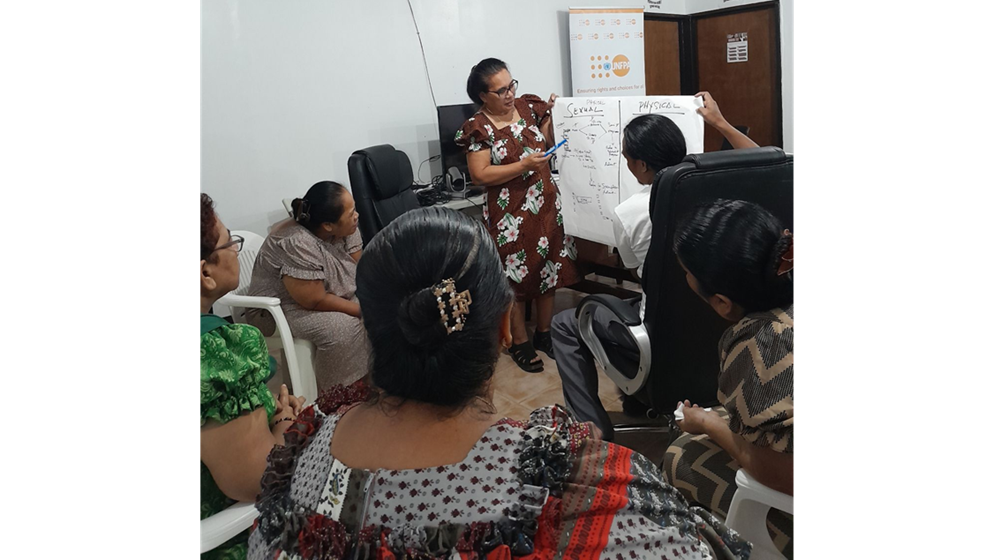UNFPA is working with the health departments in the FSM to strengthen the capacity of the health system to respond to gender-based violence, mainly domestic violence, intimate partner violence and sexual violence. This is being done by supporting the development of state-level standard operating procedures (SOPs) and building the capacity of health care workers to provide survivor-centred care.
Since 2020, UNFPA has supported Pohnpei, Yap and Kosrae states to develop and implement SOPs for GBV response. UNFPA is currently supporting the validation and finalization of Chuuk State’s SOP and capacity building for health care workers in Chuuk and Pohnpei.
This month, UNFPA trained more than 30 doctors, midwives, nurses, and health assistants from Chuuk and Pohnpei on service provision for GBV survivors. This training is part of UNFPA's ongoing efforts to strengthen the capacity of the health system in the FSM to respond to GBV.
The two-day training equipped health care workers with the knowledge and skills to recognize signs of violence, provide first-line support to survivors through psychological first aid, deliver appropriate clinical care, and provide referrals to counseling, social, and legal support services and justice, respecting the choices of the survivor. The training was based on WHO evidence-based recommendations and national and state-level legislation and policies on GBV.
“While developing SOPs and facilitating training, it is essential to translate evidence-based recommendations to the realities of the country/state, respond to practicalities and address challenges,” said Ms. Megin Reijnders, the UNFPA regional consultant who facilitated the training in Chuuk and Pohnpei. “This can help ensure that minimum standards can be met and survivor-centered care is provided”.
GBV is a widespread violation of human rights with serious public health consequences. According to prevalence estimates for FSM from the 2014 Family Health and Safety Study, one in every three women have experienced psychological, physical, or sexual violence in their lifetime. In Chuuk state, nearly one in two ever-partnered women (49,9%) experienced physical and/or sexual violence by a partner in their lifetime and 42.6% experienced this in the 12 months preceding the study. Two in five women across FSM who ever experienced partner violence (41%) were injured at least once in their lifetime due to the violence. Eight per-cent of women in FSM has experienced sexual abuse by a non-partner at least once since age 15.
"The training highlighted the importance of confidentiality and a survivor-centered approach. These values are important to us, as they will help build survivors' trust in the health system and empower them to seek help, knowing they are in a safe and supportive environment," shared one of the participants of the training.
UNFPA’s work on GBV in the FSM is informed by the National Ending Violence Against Women and Girls Policy, and findings from its Health Facility Readiness and Service Availability Assessment, which monitored levels of training of healthcare staff on GBV across FSM. )
The training in Chuuk and Pohnpei was funded by UNFPA and the USAID Bureau of Humanitarian Affairs (BHA).


